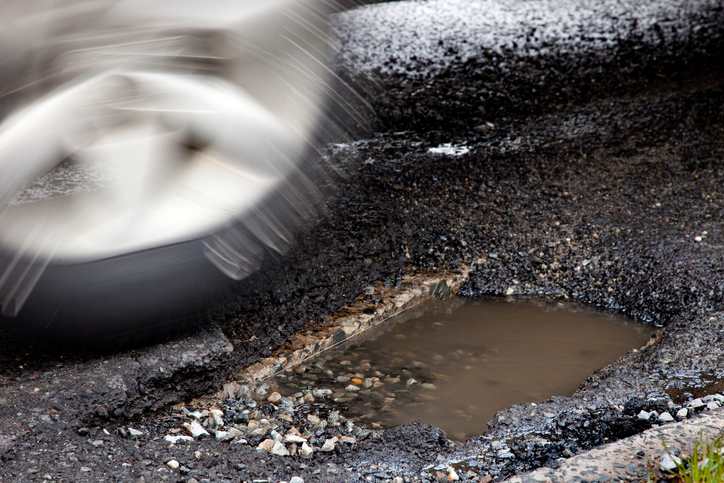There may be fewer cars tearing up city streets this spring due to COVID-19, but that doesn’t appear to have put much of a dent in Winnipeg’s annual battle with potholes.

Michael Cantor, who heads up street maintenance with the City of Winnipeg, says it’s been pretty well business as usual for city crews this year.
“So far we’ve patched around 43,000 potholes and last year for the same period was 47,000, so it’s a little bit lower than last year, but not significant,” Cantor tells Global News.
But with fewer eyes on the streets, there has been a drop in reports of the pesky road ruts.

According to city data, 311 fielded 889 pothole-related service requests in April, down from the 1,155 pothole calls they took in April 2019.
Cantor said the city currently has six crews working city-wide, as well as another six individual road patchers using a special vehicle to fill in potholes as well.

Get breaking National news
He says the drop in reports hasn’t changed the city’s annual patching endeavours.
“We know the trouble spots, so it’s not that we don’t have work — we have enough work to go and keep patching,” he said, adding crews are working night and day, five days a week.
“We do pothole patching because of water — we have the same operation at the end of the day — I don’t think it has a big effect on the state of the infrastructure.”
Construction season
Where Cantor says crews may see a change this year is during construction season, which will kick off in the next few weeks after the spring cleanup is finished.
If COVID-19 restrictions continue to see Winnipeggers staying home, Cantor says road projects may get finished quicker, and those on the roads won’t see as many delays around sites.
“Less traffic means that it’s easier to close lanes and we might be able to do work a little bit faster if there’s less traffic,” he said.
“But it’s yet to be determined, we’ll have to see in the coming few weeks if there’s an effect.”

Cantor said the reduction in wear-and-tear streets have seen during the first few months of the outbreak isn’t likely to make much of a difference in the volume of repairs they’ll need to do this summer.
“Pavements are designed (to last) for more than 10 or 20 years, so I don’t think you’ll see a change in that because of two months of lower traffic,” he said.
“We’ll see how it goes, we’ll play it by ear — this is an event that’s fast-changing for everyone.”
Cantor said the City of Winnipeg fills roughly 200,000 potholes every year.









Comments
Want to discuss? Please read our Commenting Policy first.